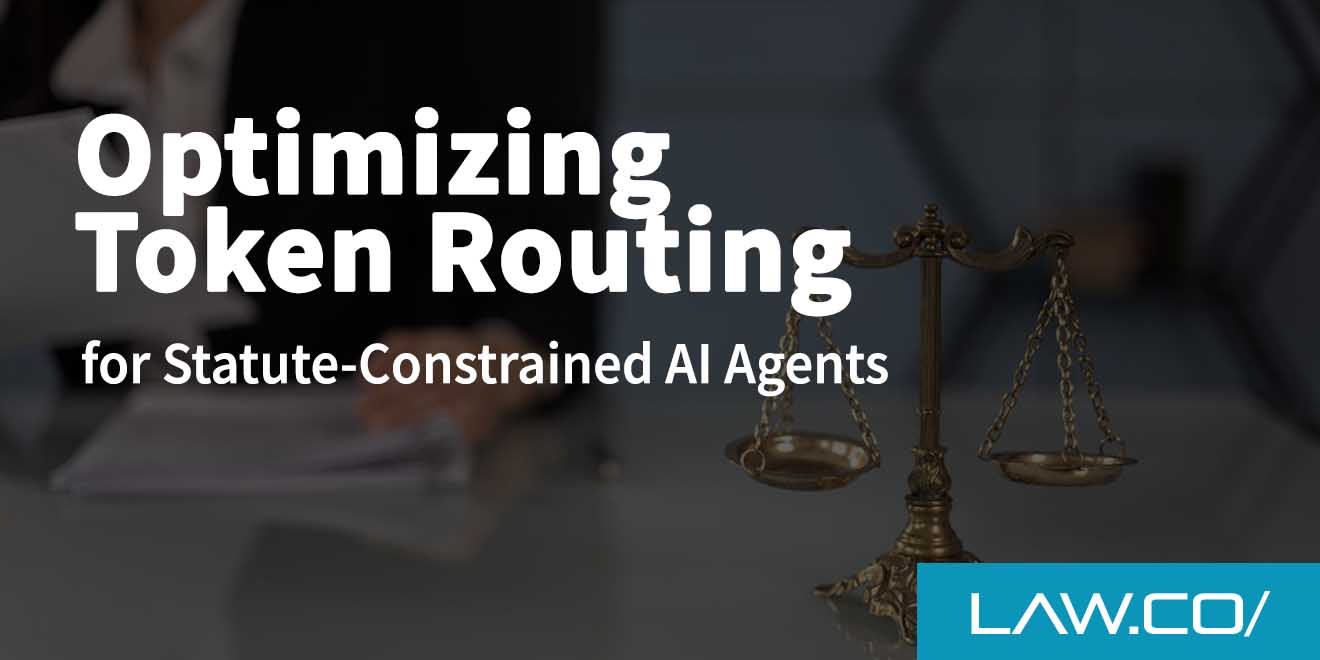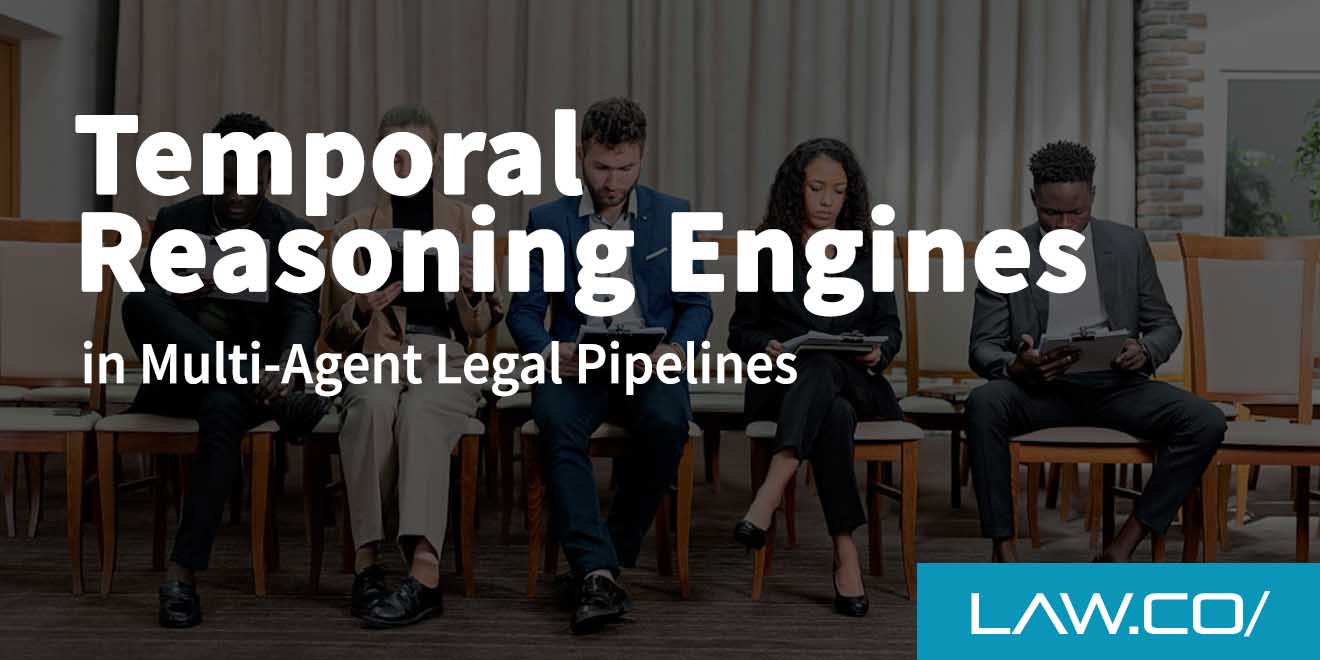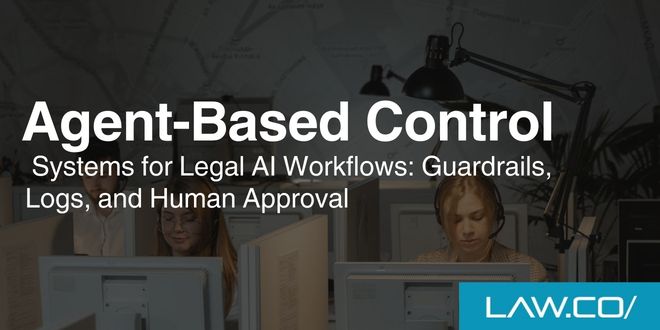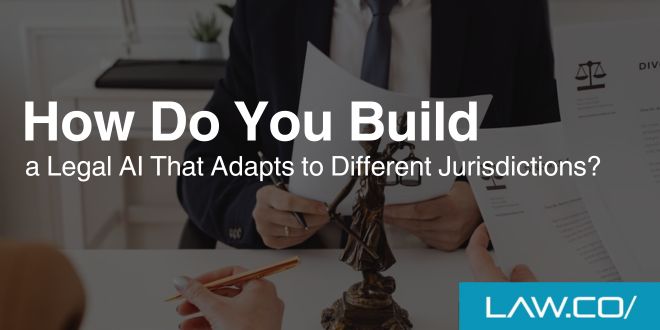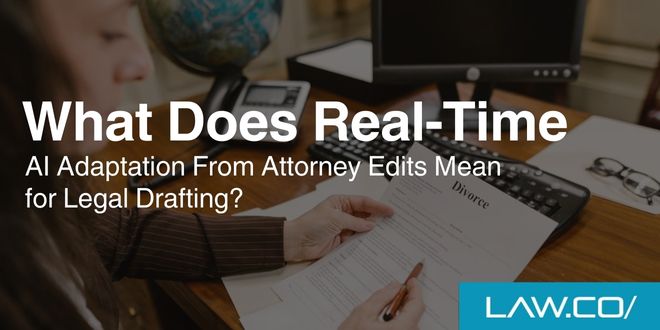

Adapting to Generative AI: Guiding Your In-House Counsel Team Through the Impact
As the legal profession continues evolving from paper filing and manual analysis to advanced solutions using Generative AI tools, in-house counsel teams need to embrace change to stay ahead of the curve.
Simply put, Generative AI uses automated processes and machine learning algorithms, augmented with human problem-solving capabilities -- but its application in law can be inexact, leading some professionals to resist technological advancements.
Yet by understanding the impact of this technology on traditional lawyering activities like research and drafting contracts a proactive approach can be developed that emphasizes continuous learning and adaptation in order to make better decisions faster.
This outline serves as a guide and reference for navigating this rapid transformation while demonstrating the potential rewards that leveraging these new technologies could bring about.
Impact of Generative AI on In-House Counsel
Exploring the capabilities of Generative AI in legal tasks

Exploring the capabilities of Generative AI in legal tasks is critical for understanding its impact on In-House Counsel.
With advancements in Generator AIs, complex tasks such as contract review, data analysis and even legal research can now be accomplished faster and with more accuracy than humans ever could. Not only that these AIs are able to interpret natural language but also continuously learn new knowledge with every task they tackle.
This capability sees potential for law firms to slash down unnecessary costs expended by hours allotted solely for manual labor or mundane process, giving a greater value made available should these processes become automated. Additionally, Generator AIs generate insights and solutions from evaluating thousands of courses at once.
Identifying potential challenges for the in-house counsel team
The in-house counsel team may face several potential challenges when adapting to Generative AI due to the changing roles of lawyering.
Determining how current tasks shift or transform due to automation will be a major concern as certain tasks become more streamlined, and unanticipated scenarios require legal teams to exercise critical judgement rather than relying solely on an algorithm’s solutions.
Additionally, unfamiliarity and resistance towards technology may further complicate the integration effort if proper training is not established. At a higher level understanding ethical implications through legally approved usage of machine learning applications should also go hand in hand with automation so that due diligence is observed at all times.
Emphasizing the need for adaptation
Generative AI has the potential to revolutionize in-house counsel processes, from contract review and drafting to legal analysis. Integrating this technology, therefore, requires a deep understanding of its implications for the in-house counsel team.
Most importantly, adaptation and embracing change will be key if firms are looking to maximize the efficiency and yield that result from such investments in AI technology.
This may mean incorporating new tools into current workflows as well as unleashing open discussion among colleagues on adapting adopted processes around data sets which could be gained through contract collation software programs alongside giving HR teams access to flexibility trends from real-life survey responses taken.
With appropriate investments across technological tools changes must complement the necessary systemic modernization with human capital at all costs – emphasizing just why adaptability is so intertwined for effectiveness within the legal industry.
Navigating the Impact
Enhancing legal research and analysis with Generative AI tools

Generative AI can be utilized to accelerate and improve the research and analysis process. This is enabled by incorporating Natural Language Processing (NLP) tools which can search large databases of documents quickly, accurately classify documents by type and apply sophisticated analytics for case evaluation.
Secondly, Synthetic Data Generation allows in-house counsels to rapidly generate data training sets needed specifically.
Further capabilities include automated legal drafting support through auto-populating clauses where legally appropriate across different jurisdictions scanning internally supplied contracts or sources such as legislation and rulings thereby enabling significant reductions in processing time when creating routine agreements and working with complex cases.
Streamlining contract review and drafting processes
Integrating Generative AI into the in-house counsel structure helps optimize and streamline the contract review and drafting processes by integrating AI-driven legal insights into traditional workflows.
This ensures accuracy while helping reduce costs, increasing turnaround times, and freeing up lawyers to focus on higher-value add tasks.
Utilizing archiving solutions with AI algorithms to automatically analyze documents or analyzing agreements for compliance can through careful use of advanced language processing capabilities help provide quality assurance when reviewing contracts.
The goal is to use automation as a tool that supplements the existing structures instead of interrupting current practices further reducing the manual effort that has traditionally been required for the completion of nonrepetitive routine processes in contracting compliance aspects.
Addressing ethical and security considerations
In the Navigation phase, it is important to emphasize ethical and security considerations when integrating Generative AI into in-house counsel teams.
Ensuring that measures are taken to protect confidential or personal information, comply with relevant legal regulations, as well as being aware of algorithms used inside platforms & software need to be implemented before implementing any changes.
Thinking proactively helps minimize risks that can come from integrating technology such as malicious threats, data breaches or other forms of attack on a company’s intellectual property. Analyzing potential concerns for compliant usage and reacting promptly with the institutional security policies is essential in successful integration of Generative AI tools.
Building a Collaborative Approach
Fostering open communication within the counsel team
Within any team, fostering an environment of open communication is paramount to effectively working through changes, and this same principle holds true when leveraging Generative AI. Open dissemination of information can help lawyers look past established preconceptions towards more resourceful thinking to take advantage of the heightened tools available.
Furthermore, by having broader conversations not only among the counsel team but with key stakeholders in operations and management positions equals better appraisal & comprehension.
With constructive input from all sides listed, it fosters a synergy for utilizing new technologies poised to revolutionize the legal landscape for better efficiency at higher levels of accessibility & accuracy.
Encouraging upskilling and continuous learning
In order to effectively leverage the benefits of Generative AI within an in-house counsel team, it is important to foster a collaborative approach and create an environment where attorneys and other staff members can grow their skill sets.
Encouraging upskilling and continuous learning allows team members to take initiative with new technologies and processes, therefore increasing their personal capabilities as well as contributing to greater organizational success.
Upskilling should be supplemented with consistent abstract guidance but also real practicum exercises in applying related technical concepts related specifically to the lawyer’s practice area; for example, acquiring basic programming knowledge necessary for utilizing legal tech tools or becoming familiar with data analytics methodologies within the litigation context.
Additionally building upon existing strengths helps develop new levels of tangible professional mastery that leads to a broad improvement in overall performance.
Embracing a growth mindset
In order to successfully integrate Generative AI into the long-term processes of an in-house counsel team, building a collaborative approach needs to be prioritized.
When establishing this new working environment, embracing a growth mindset is essential for the team members to stay open-minded and seize every opportunity presented before them in relation to G2A usage.
This entails better accepting mistakes that one individual makes as part of personal growth while constantly improving skills necessary for successful implementation effortless operation; surmounting kindles barriers and continuing participation with enthusiasm could up its effectivity that can foster better outcomes with truly excellent effects.
Having a cohesive goal collectively guaranteed by each member’s collaboration sets having to enable an office to rely on representing something greater precisely executed elements smoothly coming to its fruition.
Overcoming Resistance and Challenges
Addressing concerns and misconceptions about Generative AI
To ensure successful adoption of generative AI in legal teams, it is important to address potential concerns and misconceptions; this can be done by providing comprehensive training and resources.
Open conversations should foster understanding, and allow everyone a chance to voice any worries they may have, such as the fear that tools will automate away human roles or technical elements not being fully understood beforehand.
Countering misinformation with reliable information is also key––for example, clarifying that Generative AI tasks are automated but monitored by people (not vice versa) and that standard data protection regulations apply. With clear communication channels in place and transparency at all stages of use, resistance to new technologies can eventually be overcome for successful integration.
Providing training and support for smooth integration
Providing proper training and support for smooth integration into the team workflow is essential to ensuring Generative AI's successful adoption. It can be difficult adjusting to changes, and proper orientation helps provide the necessary context and understanding.
Organizations should make sure their teams are familiar with the tools that will be used in combination with traditional processes. This includes interpersonal guidance on using new systems as well as technical instruction where applicable.
Resources like tutorials, interactive simulations, and hands-on activities likely form an important part of the onboarding process. Taking time to educate everyone involved also establishes trust within the team over what privacy safeguards apply for collecting data for use within Generative AI systems.
Properly configured generational AI requires constant attention from members that understand specific requirements.
Monitoring progress and making necessary adjustments
Effective team integration of Generative AI technology requires that potential resistance from the in-house counsel team is addressed and managed. It is necessary to monitor progress throughout its implementation, making sure everyone’s feedback and expectations are taken into account.
Creating a timeline with goals at each stage can provide useful insight into the adoption process, helping anticipate any further support that might be needed and allowing for timely problem-solving when obstacles arise.
Monitoring also further helps ensure comprehensive ethical considerations have been included from the early stages of design through development and utilization.
While encouraging adapting to new technologies is important, taking sufficient time means these changes will be synched flawlessly with the professional practices within the legal department ultimately leading to a smoother automated environment universally accepted by all stakeholders involved in the in-house counsel.
Leveraging Generative AI for Efficiency and Innovation

Identifying opportunities for automation and efficiency gains
Generative Artificial Intelligence (AI) can provide numerous opportunities for increasing efficiency and streamlining legal processes.
Automation allowed by AI tools can identify time-consuming tasks that could be streamlined or automated, such as repetitive research tasks or contractual tracking, to reduce overhead costs while enabling in-house counsel teams to focus their time and resources on more adaptive duties.
In addition, leveraging AI is typically accompanied with improved data analysis capabilities and insights which inform faster, more accurate decision making processes related not only to legal matters but also business considerations.
With the right combination of skill sets between humans and machines leveraged intelligently, Generative AI offers attractive possibilities for organizations looking to become agile innovators.
Exploring potential for creative problem-solving and innovation
Leveraging Generative AI for creativity in problem-solving and innovation takes collaboration across disciplines. The counsel team must be able to take advantage of the ways AI can offer out-of-the-box solutions.
They also need to have an open dialog with other departments (e.g., IT, designers, marketing) as such collaborations will help uncover successful and unique implementations or applications of text mining algorithms, natural language processing systems, and semantic analysis software among others.
From these insights carefully culled using data identifiers such as customer reviews or survey results, key questions or indicators that organizations should explore can be highlighted by the system — keeping hyperspecialized minds on the lookout for creative ideas all through building better strategies granted plus an efficient optimization of resources.
Balancing human expertise with AI-driven insights
The role of human expertise is ever-present and unmovable. While Generative AI tools such as legal AI provide an expansive knowledge sequence down to the deepest minds of the industry, such a transition from manual decision-making reflects less on successes while questioning "human negligence?”
Fundamental monitoring systems such as chatbots, Q&As for user clarity or edifying automated documentation can be established through streamlined collaboration with all human stakeholders in mind.
In order for accuracy, trustworthiness, cost efficacy and transparency to remain at their peaks - no matter what tasks are being endeavored – trust must be sown into both sides of the reliances (AI & people).
The intertwining links between how we think politically produce outcomes based upon mutual interdependence. Only by balancing the human with AI insights within managed multifarious layers can Artificial Intelligence bring about effort-saving moments and innovative legal solutions to move industries forward.
Conclusion
In conclusion, Generative AI is altering the legal landscape and its impact on in-house counsel teams cannot be understated. To maximize the potential of this technology, it is essential that those invested in legal operations remain educated and adopt a growth mindset to consider how best to explore Generative AI drive efficiencies and logical problem-solving abilities.
It takes a sustained concerted effort to facilitate open communication within a team setting, provide adequate training and support for implementation, practice continually upskilling where required, plus counter misconceptions about the capabilities of AI as these arise.
This initiative must be taken not only on an individual basis but also supported through organizational effort – celebrating courageously asked taking & innovative questions without compromising necessary compliance with ethical considerations associated with data privacy which ultimately set the tone for embracing transitions associated with Generative AI.

%201.svg)


